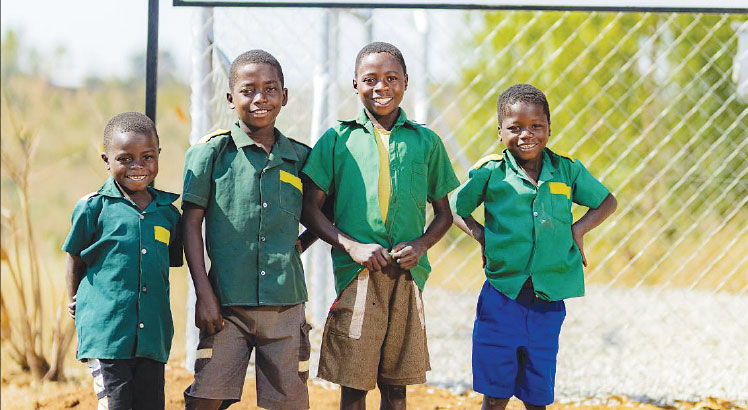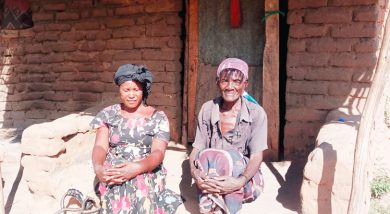Water for safe schools
In the heart of Chimkanda Village, nestled away from the hustle and bustle of Blantyre City, lies Chitole Primary School.
This is an educational oasis for 158 girls and 150 boys, each eager to learn and achieve their stellar dreams.
Among them is Tadala Hamilton, 13. Memories of water scarcity are etched in his mind forever.
As the sun shines over the schoolyard, he reminisces about days when water was a distant luxury and he fervently hopes those trying times remain in the rearview mirror.
“We used to come to school late as we had to go long distances to fetch water. Right now, we easily access water,” says Tadala, beaming with gratitude.
His face lights up as he shares how a gift of water at his school has relieved teachers, learners and surrounding communities from the burden of long treks to fetch water.
“The solar-powered water system has left the students more time for learning and play,” he says.
Tadala’s eyes gleam with appreciation for the simple but life-saving ritual of washing hands after using the restroom.
Hand hygiene was rare and nearly impossible, but is now a norm.

Chitole Primary School Headteacher Roselyne Suwedi Masamba bears witness to the remarkable impact of easy access to clean water.
“Previously, students used to come late to class because they had to draw water for use around the school which negatively impacted their learning,” she says. “With water within reach, class attendance has improved, paving the way for uninterrupted learning.”
Beyond the classroom walls, water availability has influenced a lot of positive changes.
Masamba says the school has become cleaner since water is readily available.
“The toilets are clean and we have planted flowers to beautify the school,” she explains.
The wave of change has surged even further, sending its ripples into the middle of Chimkanda Village.
Village head Chimkanda is happy that 274 families and 389 children in his community now access clean and safe water, which has reduced diarrhoea diseases.
“Diseases like cholera were very common in the past, now they have become history,” he says. “This is why we work together to protect the water infrastructure that has changed our lives.”
Diversion Kamundi, a member of a dedicated committee that oversees the water system, underscores the critical importance of safeguarding the water supply.
“Clean water has transformed our lives,” he says. “In the past, women and children used to endure exhausting journeys fetching water from unprotected sources.”
Kamundi says the prolonged trips in search of water fuelled jealousy and discord among couples, but now, harmony flows like water from their taps.
The story of Chitole Primary School and surrounding villages testifies to the ripple effects of easy access to safe water
Through perseverance and collaboration, the lives of Tadala, his fellow students and an entire village have changed—replacing vestiges of hardship with a promising future.
This is one of numerous water, sanitation and hygiene interventions by Unicef with funding from the UK’s Foreign Commonwealth Development Office.
This is in line with the United Nations’ Sustainable Development Goal six on access to Wash for all by 2030.
While at least four in five people in Malawi have access to water, 19 percent of the schools drink from unprotected sources.
Tadala feels lucky that his rural locality is not left behind in the global push to ensure safe drinking water and sanitation for all.
He now gets to class on time, ready and eager to learn.





